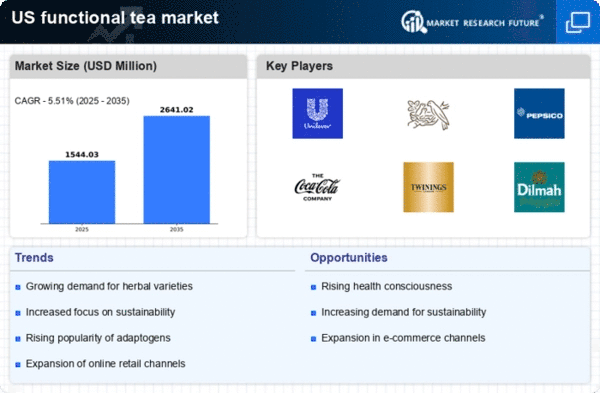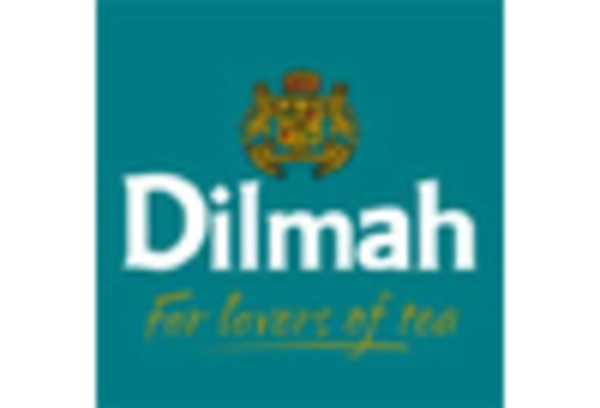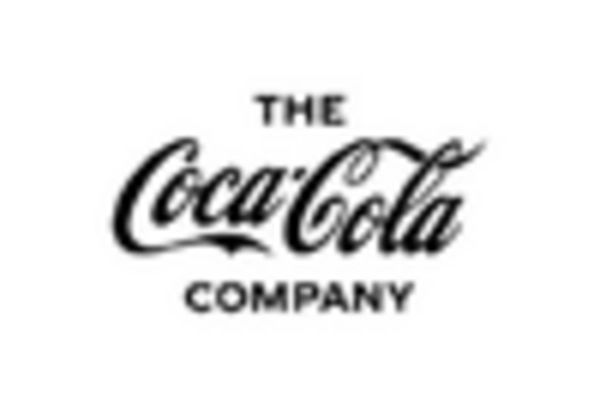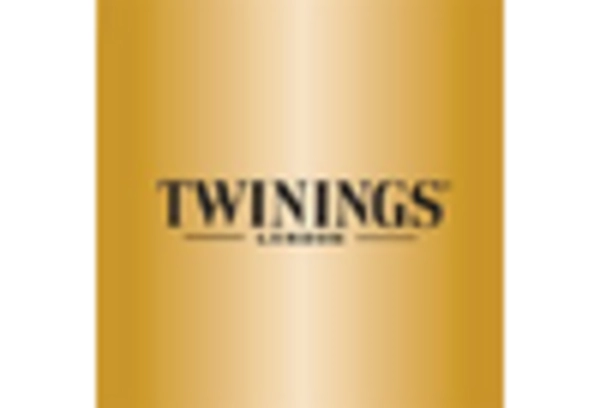E-commerce Growth
The rise of e-commerce platforms is transforming the way consumers access the functional tea market. With the convenience of online shopping, consumers can easily explore a wide range of functional tea options from the comfort of their homes. Recent statistics indicate that online sales of functional beverages have increased by 30% in the past year alone. This shift towards digital purchasing is particularly appealing to younger demographics, who prefer the ease of online transactions. As e-commerce continues to expand, it is expected to play a crucial role in driving sales and market penetration for functional tea brands, thereby reshaping the competitive landscape.
Rising Health Consciousness
The increasing awareness of health and wellness among consumers is a primary driver for the functional tea market. As individuals seek healthier lifestyle choices, the demand for beverages that offer health benefits has surged. According to recent data, approximately 70% of consumers in the US actively seek products that promote health and wellness. This trend is reflected in the functional tea market, where products infused with antioxidants, vitamins, and herbal ingredients are gaining traction. The market is projected to grow at a CAGR of 8% over the next five years, indicating a robust interest in functional beverages. This shift towards health-conscious consumption is likely to continue influencing purchasing decisions, thereby propelling the functional tea market forward.
Innovative Product Offerings
Innovation in product formulations is significantly impacting the functional tea market. Manufacturers are increasingly introducing unique blends that cater to specific health needs, such as stress relief, digestion, and immune support. For instance, the introduction of adaptogenic teas, which include ingredients like ashwagandha and reishi mushrooms, has captured consumer interest. The market for these innovative products is expected to reach $1 billion by 2026, reflecting a growing consumer preference for specialized functional teas. This trend suggests that companies that prioritize research and development in their product lines are likely to gain a competitive edge in the functional tea market.
Targeted Marketing Strategies
Targeted marketing strategies are playing a pivotal role in the growth of the functional tea market. Companies are increasingly utilizing data analytics to understand consumer preferences and tailor their marketing efforts accordingly. By segmenting their audience based on demographics and lifestyle choices, brands can create personalized campaigns that resonate with specific consumer groups. This approach has proven effective, as targeted marketing can increase engagement rates by up to 50%. As brands continue to refine their marketing strategies, the functional tea market is expected to see enhanced brand loyalty and customer retention, ultimately driving sales.
Sustainability and Ethical Sourcing
Sustainability practices and ethical sourcing are becoming increasingly important to consumers in the functional tea market. As awareness of environmental issues grows, consumers are more inclined to support brands that prioritize sustainable practices. This includes sourcing ingredients from fair trade suppliers and using eco-friendly packaging. A recent survey revealed that 65% of consumers are willing to pay a premium for products that are sustainably sourced. This trend indicates a shift in consumer values, where ethical considerations are influencing purchasing decisions. Brands that align with these values are likely to enhance their appeal in the functional tea market.
















